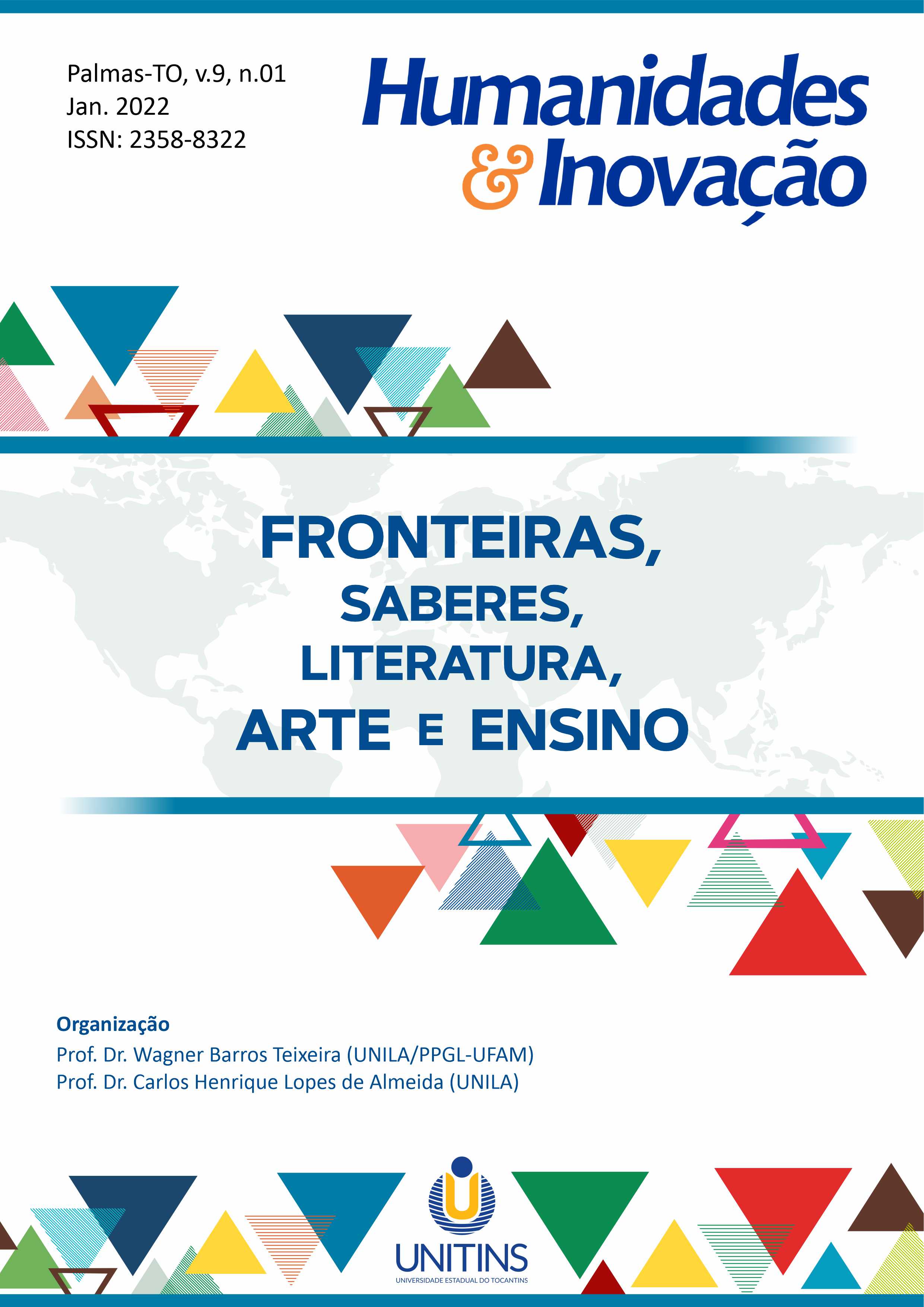AÇÃO COLETIVA E O DESENVOLVIMENTO DA AGRICULTURA FAMILIAR NO HAITI: UM INCENTIVO PARA IMPULSIONAR A RETOMADA DA SOBERANIA ALIMENTAR
Abstract
O presente artigo de ensaio teórico procura debater a ação coletiva na perspectiva da agricultura familiar, abordando os temas da Teoria Da Ação Coletiva e suas referências. Outrossim, construindo uma discussão que abrange as dez qualidades da agricultura familiar segundo Jan Douwe van der Ploeg (2014) no contexto haitiano, Desenvolvimento da agricultura familiar e a sustentabilidade, com intuito de discutir a perda da autonomia e soberania alimentar dos países emergentes, principalmente no caso haitiano. Conclui-se com duas inovações e contribuições para agricultura familiar haitiana, referiu-se a duas novas qualidades: A primeira qualidade, “é a reconstrução da estrutura das bases culturais” e a segunda é “a retomada coletiva autonômica da soberania”.
References
AGROTÓXICOS, saúde e meio ambiente. Direção de PPGDRS UNIOESTE. Produção de Sebastião Pinheiro. 2020. Vídeo (187min). Disponível em: <https://www.youtube.com/watch?v=1WH2qfU9oXE>. Acesso em: 2 out. 2020.
AXELROD, Robert. A Evolução da Cooperação. Rio de Janeiro: Leopardo, (2010).
AYOOB, Mohammed. The Third World Security Predicament: State Making, Regional Conflict, and the International System: Vol. 24, Ed. 1. Colorado: Lynne Rienner. 2010.
BUREAU DES NATIONS UNIES POUR LA COORDINATION DES AFFAIRES HUMANITAIRES (OCHA). Haïti Aperçu des Besoins Humanitaires. 2020. Disponível em:<https://reliefweb.int/sites/reliefweb.int/files/resources/Ha%C3%AFti%20Aper%C3%A7u%20des%20Besoins%20Humanitaires%202020.pdf>. Acesso em: 9 out. 2020.
BOFF, Leonardo. sustentabilidade: O que é - O que não é. Revistas e ampliada. 5 ed. Petrópolis: vozes, 2016.
MINISTÈRE DE L’AGRICULTURE, DES RESSOURCES NATURELLES & DU DÉVELOPPEMENT RURAL (MARNDR). Politique de développement agricole 2010-2025. 2011. Disponível em: <http://agriculture.gouv.ht/view/01/IMG/pdf/Politique_de_developpement_agricole-Version_finale_mars_2011.pdf>. Acesso em: 3 set. 2020.
NAÇÕES UNIDAS BRASIL. No Haiti, ONU investe US$10,8 mi para recuperar produção agrícola devastada por furacão. 2018. Disponível em: <https://nacoesunidas.org/no-haiti-onu-investe>. Acesso em 25 de 08 de 2020.
Olson, Mancur. A lógica da ação coletiva. São paulo: Edusp, (1999).
PLOEG, J. D. Van der. Dez qualidades da agricultura familiar. Rio de janeiro: AS-PTA, (2014).
PLOEG, J. D. Van der. Camponeses e impérios alimentäres: lutas por autonomia e sustentabilidade na era da globalização. Tradução Rita Pereira. Porto Alegre: UFRGS, 2008. Tradução de: The New Peasantries: Struggles for Autonomy and Sustainability in an Era of Empire and Globalization.
PLOEG, Paulo J. D. Van der Ploeg; PETERSEN, Paulo (Org.). Sete teses sobre a agricultura camponesa. Rio de Janeiro: AS-PTA, 2009. Disponível em: <http://www.bibliotecadigital.abong.org.br/bitstream/handle/11465/373/ASPTA_agricultura_familiar_camponesa_constru%C3%A7%C3%A3o_futuro.pdf?sequence=1>. Acesso em: 6 out. 2020.
VIVAS, Esther. Los porqués del hambre. Revista Vinculando, 30 jul 2011. Disponível em: <http://vinculando.org/sociedadcivil/los_porques_del_hambre.html>. Acesso em: 12 out. 2020.
VIVAS, Esther. Sans droit à manger. Plateforme Haïtienne de Plaidoyer pour un Développement Alternatif (PAPDA). Tradução Ataulfo Riera, 8 abr 2013. Tradução de: Sin derecho a comer. Disponível em:<http://esthervivas.com/francais/sans-droit-a-manger/>. Acesso em: 12 out. 2020.
WENNINGKAMP, Keila Raquel, & Schmidt, Carla Maria.Teorias da AçãoColetiva no campo do agronegócio: Uma Análise a Partir de Teses e Dissertações (1998-2012). Desenvolvimento em questão Unijuí, (Jul./set. de 2016). P. 307-343.
WILLER, Robb. A status theory of collective action. Researchgate, (2009). Disponível em:<https://www.researchgate.net/publication/228626810_A_status_theory_of_collectiv action>. Acesso em 01 de 10 de 2019.
Copyright Notice
The submission of originals to this periodic implies in transference, by the authors, of the printed and digital copyrights/publishing rights. The copyrights for the published papers belong to the author, and the periodical owns the rights on its first publication. The authors will only be able to use the same results in other publications by a clear indication of this periodical as the one of its original publication. Due to our open access policy, it is allowed the free use of papers in the educational, scientific and non-commercial application, since the source is quoted (please, check the Creative Commons License on the footer area of this page).











